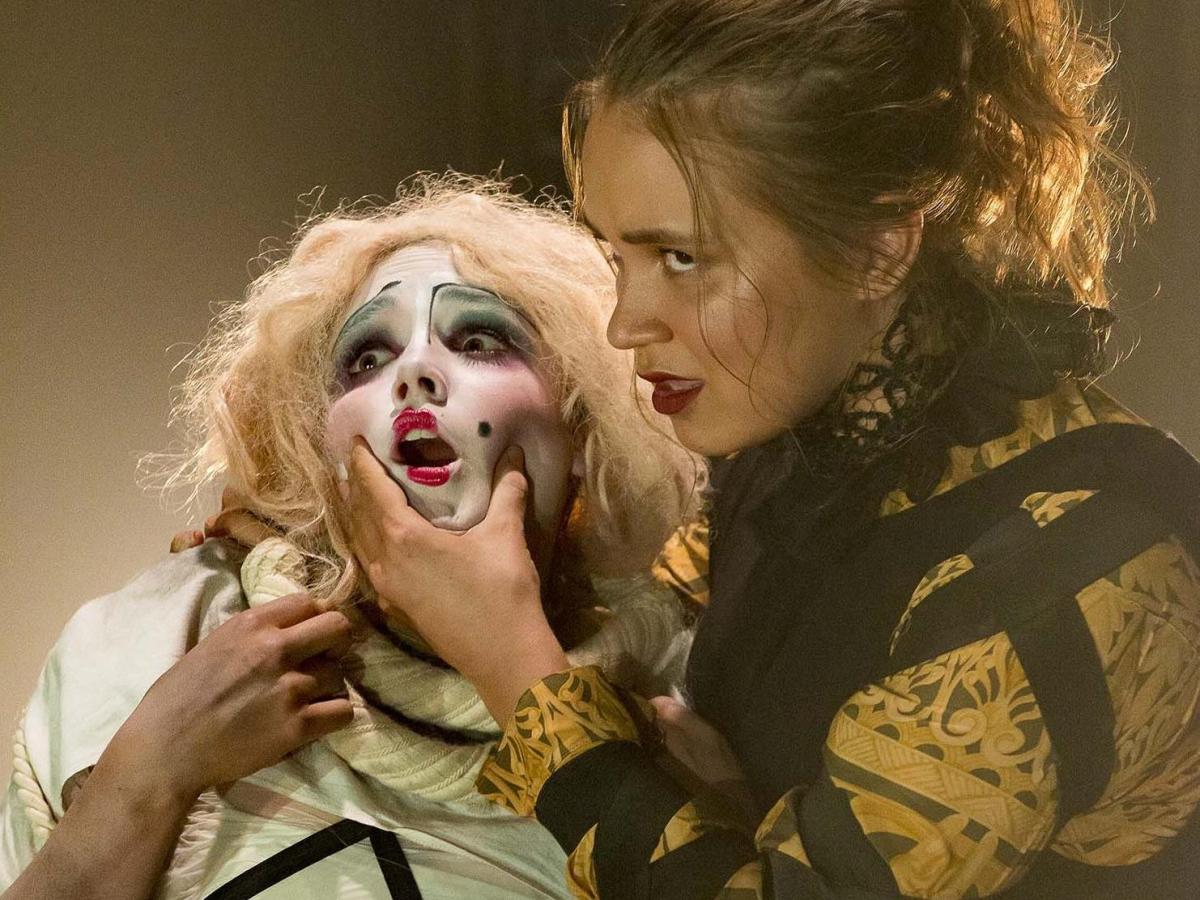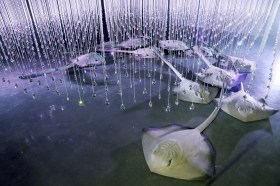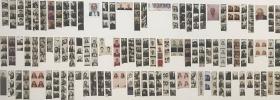Getting comfortable with being uncomfortable is an important part of the pedagogy that tutors at NIDA use to teach students. Accomplished Australian actor and singer Philip Quast, who has been enlisted to tutor on the Diploma of Stage and Screen Performance and also Diploma of Musical Theatre this semester, said a lot of acting is about becoming comfortable with the atmosphere on a film set.
‘If you can be around a camera all the time and it doesn’t freak you out, then you are halfway to actually relaxing. So much of film is about relaxing and being comfortable in and around the camera,’ said Quast.
Becoming comfortable on stage and in front of the camera is key, but it doesn’t come naturally for many people. The camera is a useful tool to get students used to how they look and sound.
‘You become more comfortable just by going through that traumatic experience of just looking at yourself and gradually finding that less confronting,’ said Quast.
Replaying footage to students after recording them in class is also a strategy that Quast uses to show students habitual behaviours they aren’t often aware of themselves.
‘You get to look at yourself and get used to the way you look. Again, you start noticing habitual behaviours –such as when you lick your lips between lines or when you drop the thought and drop out. You learn to see when you’re remembering your lines and when you’re forgetting your lines, and how that can be very transparent on camera,’ he said.
‘You have to be able to use the camera as a teaching tool and I think it’s really good that in the Diploma of Stage and Screen students are dealing with the camera all the time.’
For Drew Parker, who started studying NIDA’s Diploma of Stage and Screen Performance seven weeks ago, finding familiarity and even comfort in the things that usually make you feel nervous is a lesson he is happy to keep learning in class.
‘I’m doing something I love and it’s challenging in ways that are making me grow. I’m getting comfortable with being uncomfortable,’ he said.
‘I feel so much better in everyday situations; in the way I look at people and watch people, and the way I hold myself in public now – it’s all different. It has changed the way I see things and how I feel – and that’s just in seven weeks. I feel like I’ve already learned so much from where I started, from when I did the audition and performed the monologue. If I had the opportunity to do that monologue again, I feel like I could do it ten times stronger than I did.’
The source of this development is the constant need to get up in front of people and perform, which quickly wears away the nerves and fear of failure that can stop people from having a go. ‘I’m eager to jump up and do it. I’m eager to fail, actually. I’m not scared of that anymore,’ added Parker.
Visit NIDA to find out more about the Vocational Diploma of Stage and Screen Performance.





